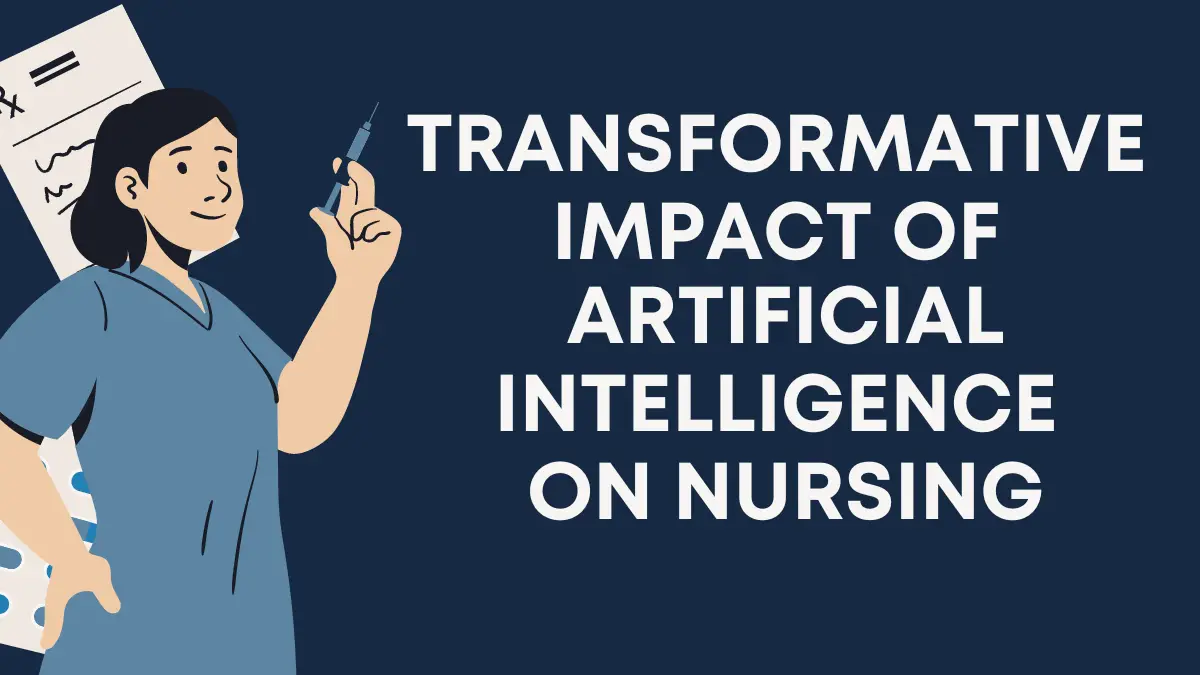In the rapidly evolving landscape of healthcare, artificial intelligence (AI) stands as a beacon of innovation, promising to revolutionize various facets of patient care. Among its many applications, AI holds immense potential to reshape nursing practice, enhancing efficiency, improving patient outcomes, and redefining the role of nurses in healthcare delivery. This article delves into the multifaceted impact of AI on nursing, exploring its implications, challenges, and the transformative opportunities it presents.
Table: Application of AI in Nursing
| Application of AI in Nursing | Description |
|---|---|
| Predictive Analytics | Utilizes machine learning algorithms to forecast patient outcomes and identify high-risk individuals for proactive interventions. |
| Clinical Decision Support Systems | Provides evidence-based recommendations to nurses, aiding in clinical decision-making and promoting personalized patient care. |
| Robotic Process Automation | Automates repetitive administrative tasks, such as documentation and inventory management, to enhance workflow efficiency. |
| Virtual Nursing Assistants | Virtual agents equipped with AI capabilities, offering round-the-clock support to patients and caregivers through telehealth platforms. |
| Educational Platforms | AI-powered learning systems tailored to individual learning needs, enabling nurses to acquire new skills and stay updated on medical advancements. |
Understanding Artificial Intelligence in Nursing:
Artificial intelligence encompasses a broad spectrum of technologies that enable machines to perform tasks typically requiring human intelligence. In nursing, AI manifests in various forms, including machine learning algorithms, natural language processing (NLP), robotics, and predictive analytics. These technologies empower nurses to streamline workflows, automate routine tasks, and extract actionable insights from vast amounts of clinical data.
Enhanced Patient Care through AI:
One of the most significant contributions of AI to nursing is its ability to optimize patient care delivery. AI-driven predictive analytics algorithms analyze patient data in real-time, enabling early detection of deteriorating health conditions and facilitating proactive interventions. Moreover, AI-powered decision support systems provide nurses with evidence-based recommendations, enhancing clinical decision-making and promoting personalized care tailored to individual patient needs.
Improving Efficiency and Workflow Optimization:
AI solutions streamline nursing workflows by automating administrative tasks, such as scheduling, documentation, and inventory management. For instance, AI-powered electronic health record (EHR) systems utilize NLP algorithms to extract relevant information from unstructured clinical notes, reducing documentation time and enhancing data accuracy. Additionally, robotic process automation (RPA) enables the automation of repetitive tasks, freeing up nurses to focus on direct patient care.
Empowering Nurses as Knowledge Workers:
In the era of AI, nurses are poised to transition from task-oriented caregivers to knowledge workers equipped with advanced technological tools. AI-driven educational platforms offer personalized learning experiences, enabling nurses to acquire new skills, stay updated on latest medical advancements, and enhance their clinical proficiency. Furthermore, AI-powered clinical decision support systems empower nurses to access up-to-date evidence-based guidelines, fostering a culture of continuous learning and professional development.
Challenges and Ethical Considerations:
Despite its transformative potential, the integration of AI in nursing is not without challenges and ethical considerations. Concerns related to data privacy, security, and algorithm bias necessitate robust governance frameworks and stringent regulatory oversight. Moreover, the ethical use of AI in clinical decision-making raises questions regarding accountability, transparency, and the preservation of human autonomy. Addressing these challenges requires collaboration between healthcare stakeholders, policymakers, and technology developers to ensure the responsible and equitable deployment of AI in nursing practice.
The Future Landscape of Nursing:
As AI continues to evolve, its impact on nursing practice is poised to expand exponentially. From virtual nursing assistants providing round-the-clock support to AI-powered predictive models guiding personalized care plans, the future of nursing is intricately intertwined with technological innovation. Embracing this paradigm shift requires a proactive approach to education, training, and professional development, empowering nurses to harness the full potential of AI as catalysts for positive change in healthcare delivery.
Conclusion:
In conclusion, artificial intelligence represents a transformative force that is reshaping the landscape of nursing practice. From enhancing patient care and optimizing workflows to empowering nurses as knowledge workers, AI holds immense promise in revolutionizing healthcare delivery. However, realizing this potential requires addressing challenges related to ethics, regulation, and equitable access. By embracing innovation responsibly and fostering a culture of continuous learning, nurses can leverage AI to unlock new possibilities and advance the art and science of patient care in the digital age.


